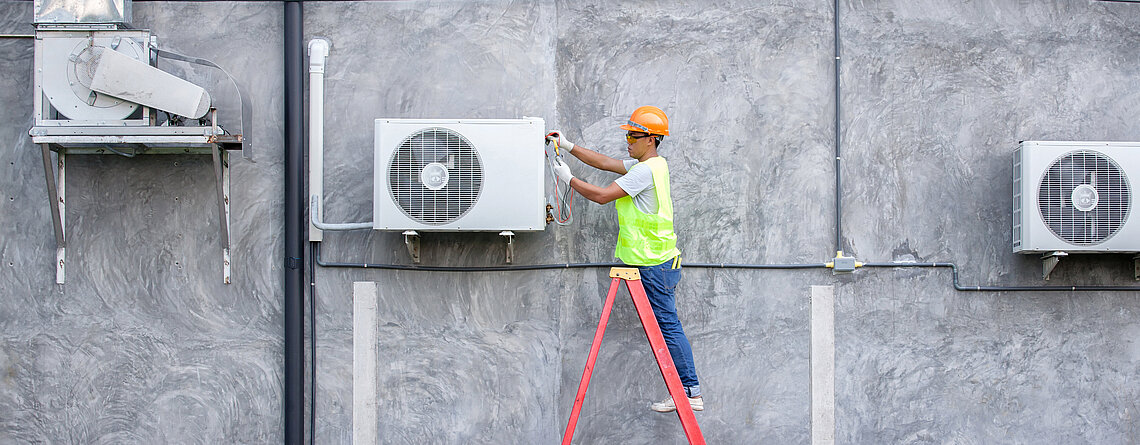Background and Objective
The number of air conditioners (ACs) in the region of the Southern African Development Community (SADC) will increase from 5.4 million to around 17.7 million by 2030. The growing use of ACs will lead to increasing greenhouse gas emissions due to the fossil-fuel-based electricity used by most ACs and the fluorinated gases (F-gases) that are mainly used as refrigerants in ACs and cause substantial emissions as they leak. Cost aspects and the inaccessibility of energy-efficient and F-gas-free ACs (Green ACs) are currently major obstacles for a sustainable transformation of the cooling sector in the SADC region. The programme will develop an implementation-ready support programme that prepares for the introduction of Green ACs in Botswana, Eswatini, Namibia and South Africa. Therefore, framework conditions to pilot market-based approaches according to Article 6 of the Paris Agreement will be created.
Implementation
The programme will work on political, contractual, regulatory, technological, and economic framework conditions for an AC replacement programme. Project activities include advise and the development of basic documents for carbon financing and quantification of emission reductions. Furthermore, adequate policy instruments which support the accelerated market uptake of Green ACs will be developed. The demand and supply of Green ACs in the partner countries will be created and increased and the replacement programme including an end-of-life management concept for old ACs will be designed. The programme will also provide an efficient and appropriate financing structure, which is in line with host countries key agencies’ needs and preferences.
Milestones and Outlook
At project end, bilateral preliminary agreements to transfer Internationally Transferred Mitigation Outcomes (ITMOs) as a basis for carbon financing and quantification of emission reductions will be concluded. The introduction of adapted Minimum Energy Performance Standards (MEPS) will be prepared. The replacement of conventional ACs with Green ACs is also paved through the prepared supply and demand side in the region and the development of a concept for the correct disposal of old ACs. The development of a financing instrument rounds off the support programme.
The current programme (2021-2022) is the preparatory phase for the subsequent implementation programme, scheduled to start in 2023. If both programme phases are successfully implemented, significant greenhouse gas reduction and energy savings are expected as well as co-benefits, such as the creation of new skilled jobs and easier market penetration of natural refrigerants.

